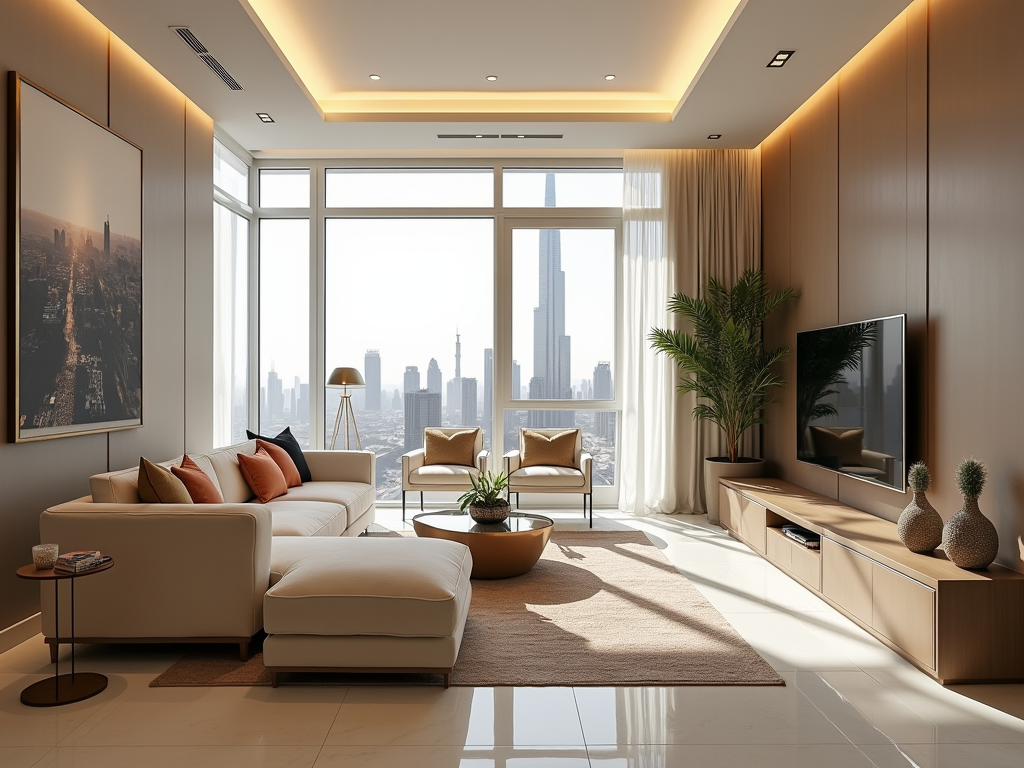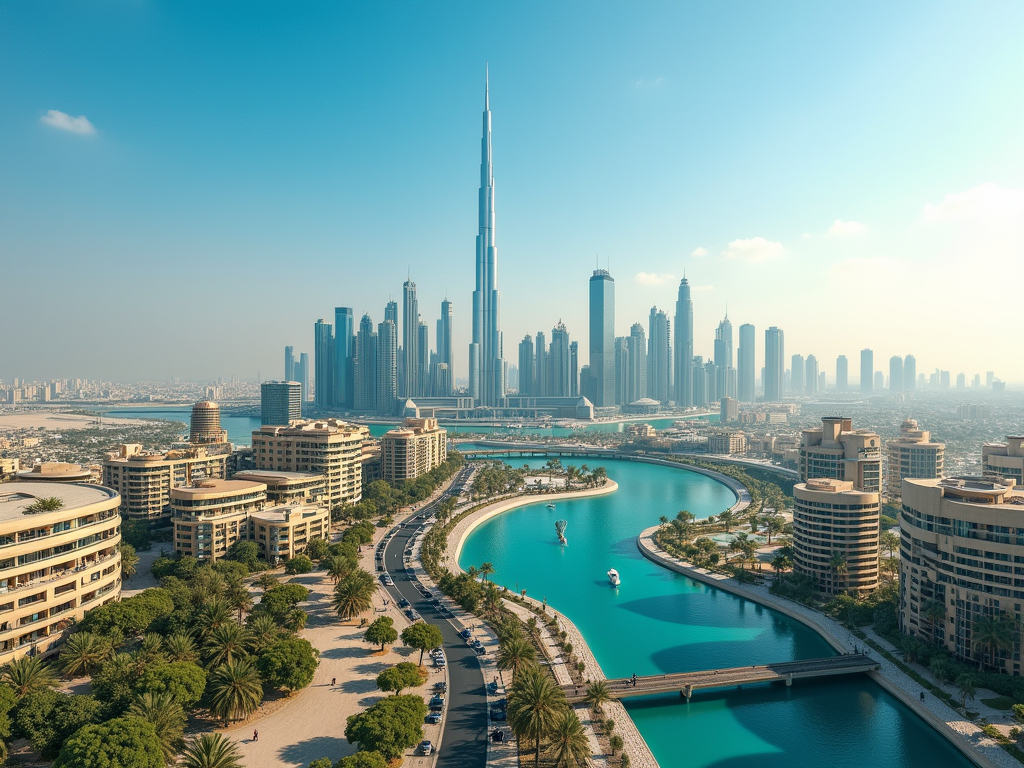Dubai’s real estate market is increasingly recognized as a lucrative avenue for investors seeking high returns. With a dynamic economy, strategic location, and favorable regulatory environment, the emirate has become a hotspot for property investment. The combination of robust tourism, a growing expatriate population, and innovative infrastructure projects are just a few reasons driving the market’s success. Investors can expect substantial rental yields, potential capital appreciation, and a safe haven for their capital. In this article, we will delve deeper into the key factors that contribute to the impressive returns of Dubai’s real estate market, exploring its unique selling propositions and opportunities.
1. Strong Economic Growth

One of the primary factors contributing to the high returns in Dubai’s real estate market is its strong economic growth. The emirate has consistently recorded impressive GDP growth rates fueled by diversification from oil dependency. Major sectors like tourism, trade, transport, and technology are driving this growth, with initiatives like Expo 2020 further boosting economic activity. The influx of international businesses seeking opportunities in Dubai also bolsters the job market, causing an increase in demand for residential and commercial properties. Here are some aspects of Dubai’s economic landscape that benefit investors:
- High GDP growth rates indicating a vibrant economy
- Diverse economic sectors reducing risk for investors
- Government initiatives promoting foreign investments
- Continued influx of expatriates drawing demand for housing
- Expansion of free zones encouraging business setup
2. High Rental Yields

Investors in Dubai often enjoy exceptionally high rental yields as compared to global standards. The property rental market in Dubai provides an average rental yield ranging from 7% to 10%, presenting a lucrative prospect for landlords. Popular neighborhoods like Downtown Dubai, Dubai Marina, and Arabian Ranches are particularly attractive for renters, and consequently, investors. Several factors contribute to these impressive yields:
- High demand driven by a growing expatriate community
- Limited supply of affordable housing options in key areas
- Annual events and activities boosting short-term rental markets
- Strategic location that appeals to investors and tenants alike
- Regulatory framework supporting property rights
The regulatory environment in Dubai is highly favorable for real estate investors, providing peace of mind and a streamlined process for property transactions. Initiatives such as the introduction of 99-year leasehold agreements and the implementation of property ownership rights for expatriates have incentivized investment. Moreover, the Dubai Land Department and Real Estate Regulatory Agency (RERA) have established clear guidelines to protect both buyers and investors. Key regulatory features include:
- Transparent property laws and ownership structures
- Efficient dispute resolution mechanisms
- Clear and written agreements for all transactions
- Strong protection for tenant rights
- Incentives for developers promoting affordable housing
4. Infrastructure Development
Dubai is renowned for its ongoing infrastructure development, which significantly enhances property values and overall market attractiveness. Iconic projects such as the Dubai Marina, Burj Khalifa, and Dubai Mall highlight the emirate’s commitment to creating an appealing living environment. Furthermore, significant investments in transportation, including the expansion of the Metro system and new road networks, improve accessibility and encourage growth in areas that were previously underdeveloped. Some key infrastructure projects include:
- The expansion of Dubai International Airport to boost tourism and commerce
- New residential communities with integrated amenities
- Development of sustainable energy solutions
- Plans for the new Dubai Creek Harbour and its vibrant cityscape
- Upgrades to public transport for enhanced connectivity
5. High Expatriate Population
Dubai’s status as a global hub has attracted millions of expatriates who flock to the city for work and leisure. This diverse population significantly boosts the demand for residential properties, particularly in high-demand neighborhoods. The city’s openness, favorable tax environment, and quality of life play pivotal roles in making it attractive for expatriates. As more individuals choose Dubai as their home, the demand for both rental and owned properties continues to rise. Notable benefits of a high expatriate population include:
- A diverse multicultural environment enhancing the appeal of neighborhoods
- Stable demand for residential rentals across various property types
- Opportunities for investing in different market segments
- Development of amenities and services catering to diverse needs
- Increases the overall consumption of housing and commercial space
Conclusion
In summary, Dubai’s real estate market continues to offer high returns for investors, driven by strong economic growth, high rental yields, a favorable regulatory environment, robust infrastructure development, and a large expatriate population. Investors looking to capitalize on these opportunities should remain vigilant and informed about market trends, ensuring they make strategic investments that lead to sustainable profits. With the ongoing commitment of the Dubai government towards creating an attractive environment for business and living, the future of real estate in this vibrant city looks incredibly promising.
Frequently Asked Questions
1. What is the average rental yield in Dubai?
On average, the rental yield in Dubai ranges from 7% to 10%, making it one of the more lucrative markets globally.
2. Can foreigners buy property in Dubai?
Yes, foreigners can buy property in Dubai and can possess full ownership in designated freehold areas.
3. What areas are best for investment in Dubai?
Popular investment areas include Downtown Dubai, Dubai Marina, Dubai Creek Harbour, and Arabian Ranches, among others.
4. Are there any taxes on property ownership in Dubai?
Dubai has no property tax; however, there is a one-time registration fee when purchasing property.
5. How is the rental market affected by seasonal tourism?
During peak tourism seasons, rental demand often spikes, allowing investors to capitalize on higher short-term rental rates.
